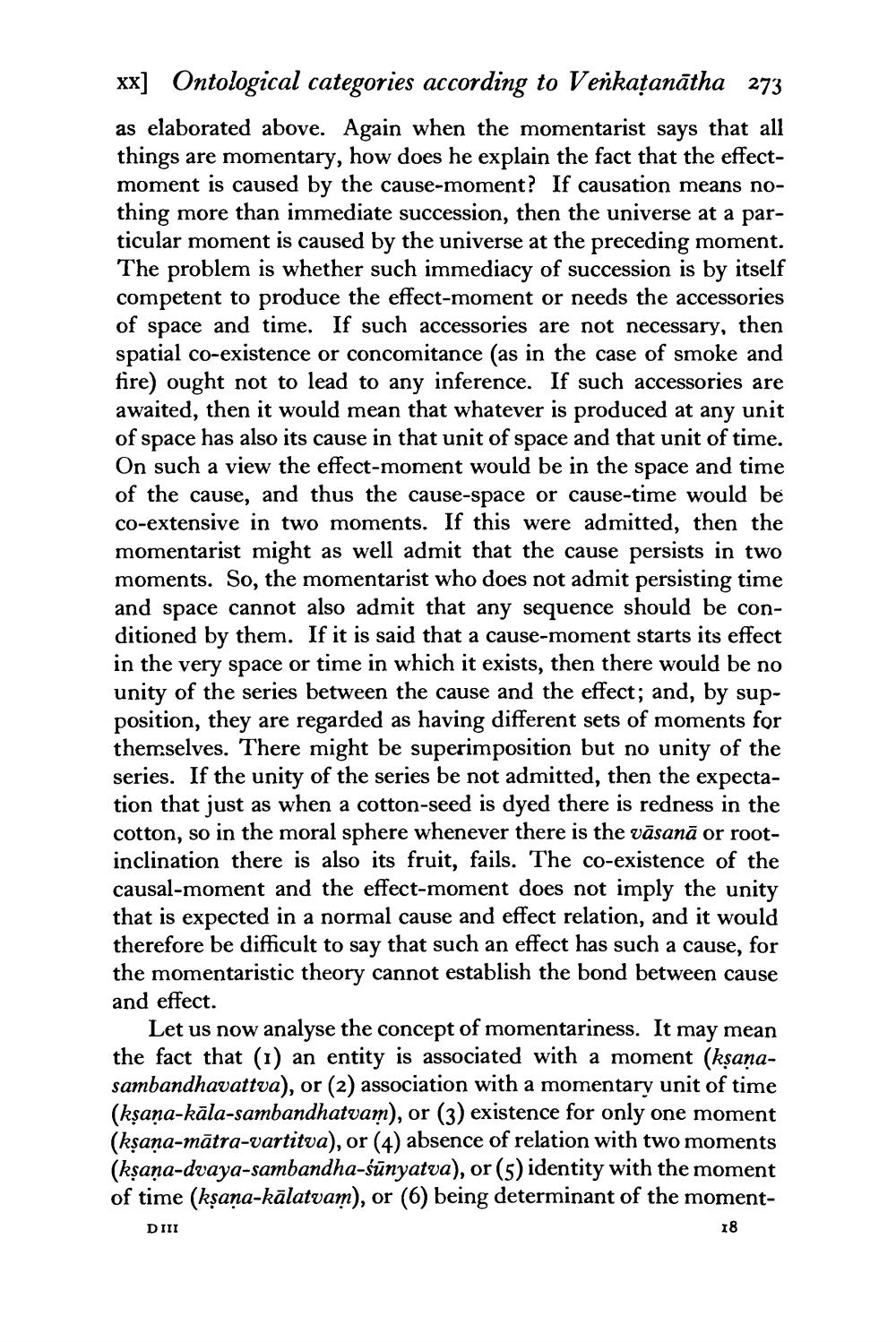________________
xx] Ontological categories according to Venkațanātha 273 as elaborated above. Again when the momentarist says that all things are momentary, how does he explain the fact that the effectmoment is caused by the cause-moment? If causation means nothing more than immediate succession, then the universe at a particular moment is caused by the universe at the preceding moment. The problem is whether such immediacy of succession is by itself competent to produce the effect-moment or needs the accessories of space and time. If such accessories are not necessary, then spatial co-existence or concomitance (as in the case of smoke and fire) ought not to lead to any inference. If such accessories are awaited, then it would mean that whatever is produced at any unit of space has also its cause in that unit of space and that unit of time. On such a view the effect-moment would be in the space and time of the cause, and thus the cause-space or cause-time would be co-extensive in two moments. If this were admitted, then the momentarist might as well admit that the cause persists in two moments. So, the momentarist who does not admit persisting time and space cannot also admit that any sequence should be conditioned by them. If it is said that a cause-moment starts its effect in the very space or time in which it exists, then there would be no unity of the series between the cause and the effect; and, by supposition, they are regarded as having different sets of moments for themselves. There might be superimposition but no unity of the series. If the unity of the series be not admitted, then the expectation that just as when a cotton-seed is dyed there is redness in the cotton, so in the moral sphere whenever there is the vāsanā or rootinclination there is also its fruit, fails. The co-existence of the causal-moment and the effect-moment does not imply the unity that is expected in a normal cause and effect relation, and it would therefore be difficult to say that such an effect has such a cause, for the momentaristic theory cannot establish the bond between cause and effect.
Let us now analyse the concept of momentariness. It may mean the fact that (1) an entity is associated with a moment (kșanasambandhavattva), or (2) association with a momentary unit of time (kșana-kāla-sambandhatvam), or (3) existence for only one moment (kşaņa-mātra-vartitva), or (4) absence of relation with two moments (kşana-dvaya-sambandha-śūnyatva), or (5) identity with the moment of time (kşaņa-kālatvam), or (6) being determinant of the moment
18
DIII




